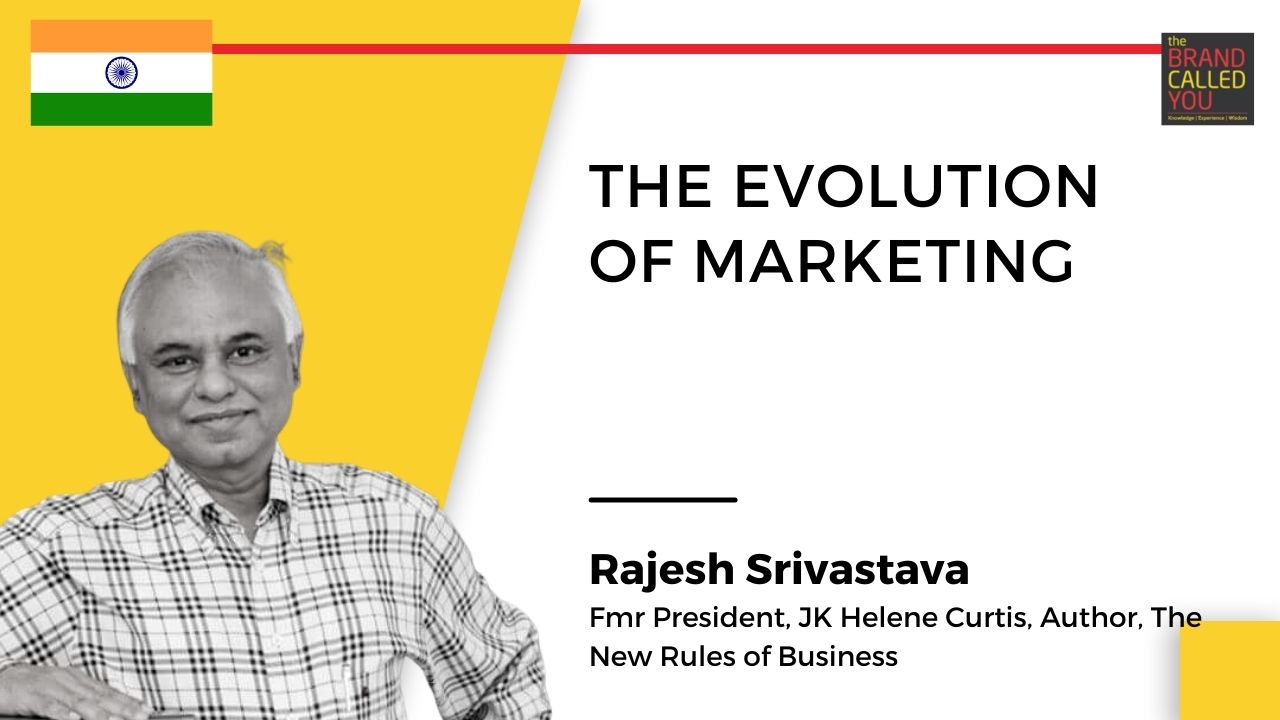Rajesh Srivastava, Fmr President, JK Helene Curtis, Author, The New Rules of Business
Rajesh Srivastava earned his engineering degree from the Indian Institute of Technology, in Kanpur, and studied management at the Indian Institute of Management, in Bangalore.
Podcast
Podcast: Play in new window | Download
Follow TBCY RSS
Overview
Marketing strategy can be very subjective. Marketing in one field can be completely different from marketing in another field. But one thing which is common in every field is understanding the customer.
Our guest for today, Mr. Rajesh Srivastava is a startup mentor and renowned expert of marketing.
He is the former President of JK Helene Curtis. Rajesh has authored a book called ‘The New Rules of Business’. He also writes for several publications.
Marketing- A science or an art?
Rajesh says that marketing is an art. He backs his statement by saying that marketing includes creativity, innovation, storytelling, and other things that belong to the right side of the brain. Hence marketing is an art.
What does it take to build a successful brand?
In Rajesh’s opinion, a successful brand has to identify the customer pain point and solve it in a robust manner. Another thing he tells us is that the solution should shame the competitors.
Requisites to keep a brand alive
On being asked about keeping brands relevant over a period of time, Rajesh answers with an example. He explains how a fairness cream brand has been keeping itself relevant since the mid 20th century. In the 1970s the fairness cream company used to show advertisements of girls using their cream before marriage. In the 1980s the advertisement changed to a girl applying fairness cream to make her husband see her. When girls started to become more career-oriented, the advertisement changed according to that. Now, when people have started to reject the idea of getting fair, the fairness cream company has changed its whole concept to provide glow rather than fairness.
This is how the brand has to keep up with the change to survive in the market.
Building a brand in the digital world.
Rajesh again explains with an example how the brands are building themselves digitally. He takes women buying clothes as his prop. He tells us that when he goes shopping with his wife, she generally struggles to choose outfits for her, then trial and deciding on one is a long and time-consuming process. But, now many apparel brands are introducing digital mirrors. A woman does not need to physically try the clothes, she can just drag and drop the outfits on the screen to see how it will look on her. She can shortlist from there, put on social media and ask her friends to finalize the best. The digital world is providing more comfort and satisfaction to the customers.
How should brand managers cater to the WFH community?
This time Rajesh takes the example of alcohol consumption during the lockdown. He says if he were to distribute alcohol during the lockdown, he would have immediately planned it. Considering people are storing alcohol in bulk, he would have first increased the size of the bottles, changed the packaging so that it does not break and then he would have added a handle on the bottle to make it convenient to pour from a heavy bottle. By doing these three simple things, he would have made it easier for people to stock alcohol at home.
What is the younger generation doing to change branding?
Rajesh tells us that when he started working in the 1980s, the chairman of his company told him that the business of their business was to earn profit. Rajesh believes it to be different now. He tells us that today when a person chooses a company, he wants it to be environment-friendly, employee-friendly, and then making profits. This is the case with both employees and customers. Hence, the companies are under constant pressure to adapt to the things people will like.
“The New Rules of Business”
Rajesh tells us that he has been involved with many global brands for managing, training, consultancy, and other services. He also saw new-age companies like Amazon, Starbucks, etc. doing business with new rules. He was amazed and it motivated him to write the book. Rajesh also shares some of the improvised rules he saw in the industry.


